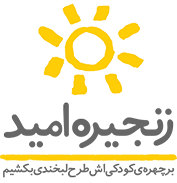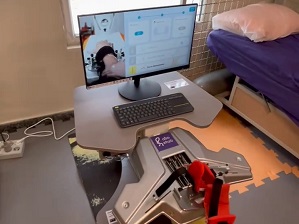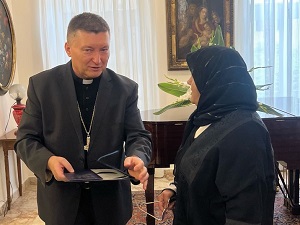Meeting with United Nations High Commissioner for Refugees
Fillipo Grandi, United Nations High Commissioner for Refugees was introduced to Zanjireh Omid's services.Monday, October 1, 2018
Fillipo Grandis, United Nations High Commissioner for Refugees visited the Bureau for Aliens and Foreign Immigrants’ Affairs (BAFIA) and had several meetings with Iranian officials during his travel to Iran. He also had a joint meeting with various NGOs and heard about Zanjireh Omid services.
At a meeting with representatives of Iranian NGOs in Tehran, Fillipo Grandi presented a report on the recent changes in comprehensive refugee protection framework.
A number of NGOs including Zanjireh Omid reported on their activities at this conference. Maryam Marashi, the general director of Zanjireh Omid presented the institute and stressed the need for increasing international support." Iran is home to a large number refugees (about one million legal and three to four million illegal Afghans) requiring more support from United Nations. The financial support is insignificant and treatment expenses are three times higher than the budget granted by UN," Maryam Marashi added.
She also pointed out to the shortcomings of the national health insurance scheme and said: "treatment costs are high and this makes refugees refer to NGOs whereas this is UNHCR's obligation to support refugees."
In the end, a question and answer session was held between the participants and Mr. Grandi.
At a meeting with representatives of Iranian NGOs in Tehran, Fillipo Grandi presented a report on the recent changes in comprehensive refugee protection framework.
A number of NGOs including Zanjireh Omid reported on their activities at this conference. Maryam Marashi, the general director of Zanjireh Omid presented the institute and stressed the need for increasing international support." Iran is home to a large number refugees (about one million legal and three to four million illegal Afghans) requiring more support from United Nations. The financial support is insignificant and treatment expenses are three times higher than the budget granted by UN," Maryam Marashi added.
She also pointed out to the shortcomings of the national health insurance scheme and said: "treatment costs are high and this makes refugees refer to NGOs whereas this is UNHCR's obligation to support refugees."
In the end, a question and answer session was held between the participants and Mr. Grandi.




